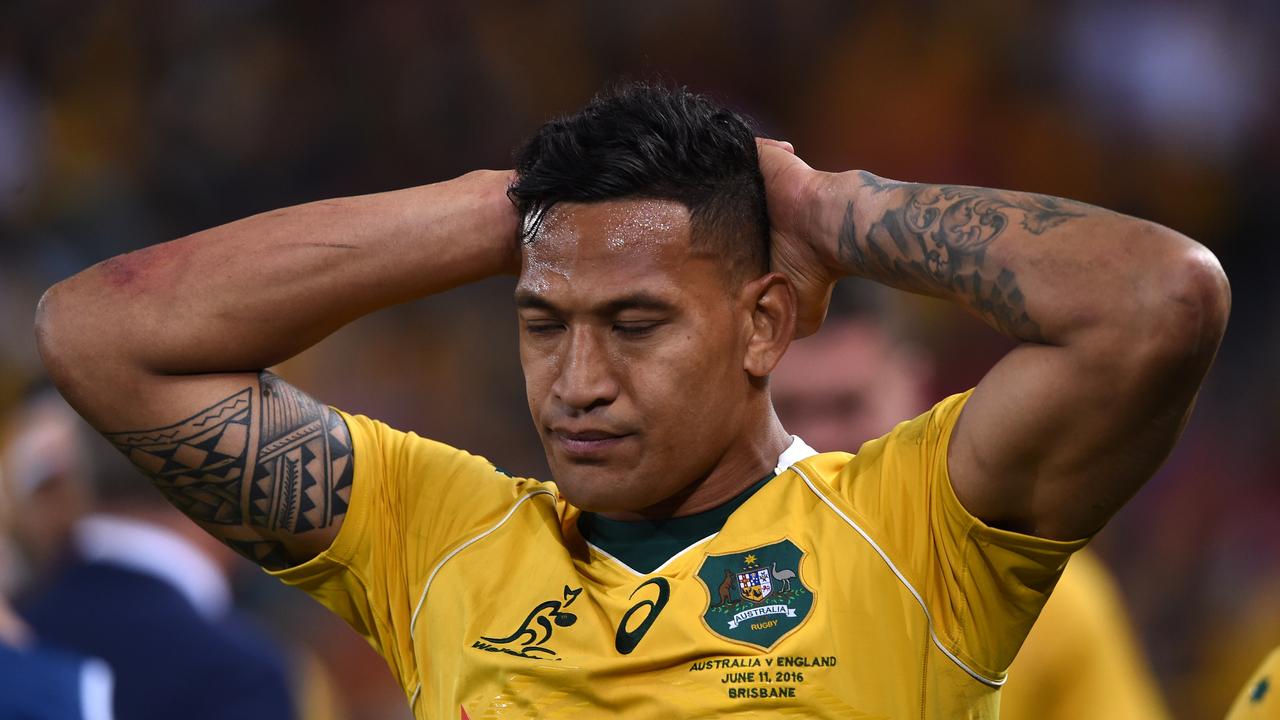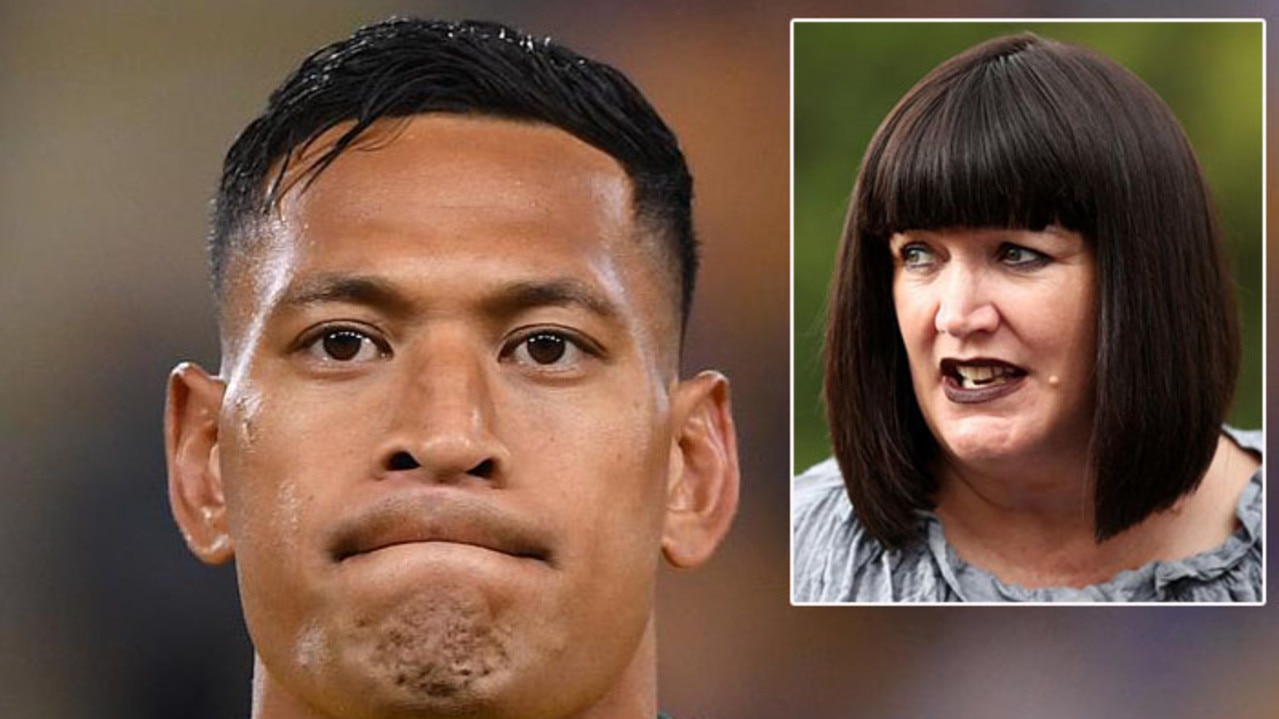Rebels flying but the state of the Brumbies is the biggest story
The biggest story from an Australian perspective after three rounds of Super Rugby is … the Brumbies
The Wallabies will be playing the Six Nations champions and quite possibly the Grand Slam winners when they host Ireland for three Tests in June. But first, the biggest story from an Australian perspective after three rounds of Super Rugby is … the Brumbies.
That might seem a curious thing to say given the Melbourne Rebels have made the best start to a season in the club’s history by winning all three games; the Queensland Reds are their nearest rivals and sixth on the table despite having scored the least number of tries in the competition; and the Waratahs’ unbeaten start to the season was dramatically ended in the first quarter early yesterday as the Jaguares scored the equal most points ever against them. So what, pray tell, makes the Brumbies the most significant news story?
All of the above fell within the boundaries of the predictable. Clearly the Rebels were not set up to fail by Rugby Australia. It was bad enough having to cull the Perth franchise. To then watch the Rebels slump to the bottom of the table would have been a disaster. So from the moment the decision to axe the Force was taken, Rugby Australia has done everything possible to make sure Melbourne succeeded. (Whether it also did the same before the Force was axed is the subject of an apparently interminable Australian Investment Commission investigation.)
The Rebels were allowed to assemble a playing roster equal to anything that has ever been seen in Australian rugby. That, of course, doesn’t guarantee automatic success. The Waratahs have shown over many years that fielding a virtual Test team doesn’t guarantee a winning season. Rebels coach Dave Wessels has done a marvellous job bringing his disparate squad together and then formulating a simple but effective game plan that, in the creative hands of Will Genia, is proving unstoppable for the moment.
Brad Thorn’s Reds are proving a marvel. Just about everything that could have gone wrong in the off-season — with Quade Cooper and Nick Frisby told they were surplus to requirements, Karmichael Hunt pleading guilty in the courts to possessing a prescription drug without a prescription and George Smith becoming an overnight guest of the Japanese police who then stayed on for nine more days — went wrong. And in their final trial, they lost the one player who looked capable of breaking the line, Izaia Perese.
Then the season began. They lost both their captain Scott Higginbotham and their Wallabies lock Lukhan Tui to three-week suspensions in the first game and looked to have been wound too tightly as a team.
But Thorn, who is proving himself not just an inspirational coach but an insightful one as well, adjusted, finetuned, and over the course of the next fortnight they took down two of the most imposing teams in the competition, former champions the Brumbies and the Bulls.
Even those scorelines have a reassuring old-fashioned look about them, 18-10 (six penalty goals to two tries: who does that these days?) and 20-14. They’ve only scored five tries in the process and one wonders where exactly the strike power will come from when other teams work them out.
But for a team of kids — a whole host of “project” players in a “project team”, as Thorn described them — they are proving themselves remarkably resilient. And tough.
The Waratahs, as ever, continue to tease and frustrate. At times, they look brilliant, moving the ball in mesmerising fashion, and they certainly have ridden their luck in the opening win over the Stormers and the draw against the Sharks.
At other times, however, it looks like they have no idea how to transition from attack to defence. Things happen to them and tries are scored and they look utterly clueless. Or they score themselves, as Jed Holloway did just before halftime when he picked up the ball from the ruck, drove straight ahead through non-existent defence, and you could almost see them musing: say, you don’t suppose the Jaguares aren’t committing to the breakdown, do you? God help Australia if anything happens to Bernard Foley or Michael Hooper but there really are times when the Waratahs look completely rudderless.
They scored 28 points after 26 were scored against them in the first quarter by the Jaguares. Big deal. Too little too late. Now their next match, on Sunday against the Rebels at Allianz Stadium looms as a season-definer.
Which brings us to the Brumbies. Their season has been anything but predictable, an unconvincing win over the Sunwolves in Japan, followed by a disturbing loss to the Reds, which somehow presaged the loss last Friday to the Rebels.
It was the Reds game that, in retrospect, was the most significant. They took on the Brumbies pack and beat them at their own game. And while the Brumbies convinced themselves that they had the strongest pack in the competition and had just had an off-night, one can almost imagine Wessels reworking his notes for the Canberra side and deciding to attack them at their greatest strength.
Initially, it looked to have misfired, especially as the Rebels were without their inspirational captain Adam Coleman. Yet as it turned out, Matt Philip and Ross Haylett-Petty were precisely the locks he needed, both aggressive workaholics. The Brumbies came out with their customary swagger and looked to be bossing the game for the first quarter but the longer the match went on, the more the spell was broken.
The gainline success rate was telling — 55 per cent for the Brumbies in the first half, 90 per cent for the Rebels. They were making virtually no impact and increasingly were looking “scratchy”. Henry Speight scored shortly after halftime to put the Brumbies into the match but the try seemed to owe more to individual inspiration and determination than to cohesive team play.
It raises the question of whether the Brumbies, in attempting to expand their game from their customary set-piece orientation, have gone away from what they do best. And, in turn, that raises another question: before it’s too late, should they retreat to what they know? It all looks way beyond the capacity of David Pocock to fix when he makes his return.
All of this, meanwhile, is being acted out against the increasingly disturbing prospect of the Irish heading our way come June. The Scots have disposed of the Wallabies 24-19 and 53-24 in Sydney and Murrayfield, but the Irish disposed of Scotland relatively comfortably 28-8 on the weekend to claim the Six Nations title even before they head to Twickenham to play an Eddie Jones-coached England side that look to have lost their mojo.
Let it be said right now: when Joe Schmidt’s Irishmen come calling, physicality alone won’t be enough.




To join the conversation, please log in. Don't have an account? Register
Join the conversation, you are commenting as Logout